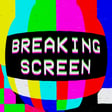
Sam Meikle: the challenges and opportunities for Australian screenwriters in 2025
We’re joined on Breaking Screen by Sam Meikle, a writer and creator with hundreds of hours of produced credits that range from television comedies, dramas, animation, and web series. Sam was a co-creator, head writer, and Executive Producer of the 2022 ABC/Netflix series MaveriX and the previous year he was a writer, executive producer and co-showrunner of the series Wakefield for the ABC, BBC Studios and Showtime. Sam was also selected in 2023 to take part in The Creators, the inaugural showrunning program from Screen Australia and the Australian Writers’ Guild.
Throughout the episode, Sam talks to everything from the importance of knowing your writing strengths, his advice of taking ideas to markets, why Australian writers are like Swiss Army Knives and what some of the challenges and opportunities are for local screenwriters in 2025.
